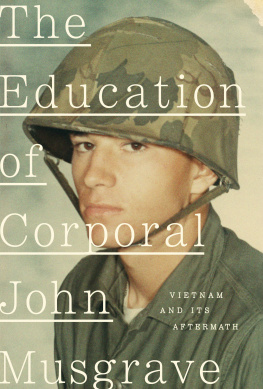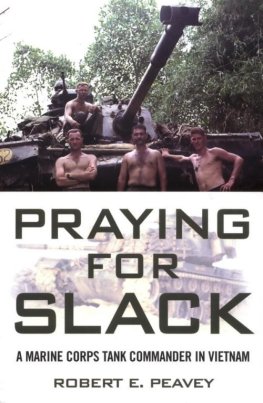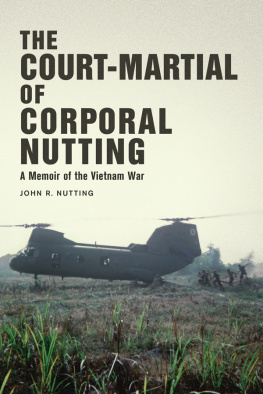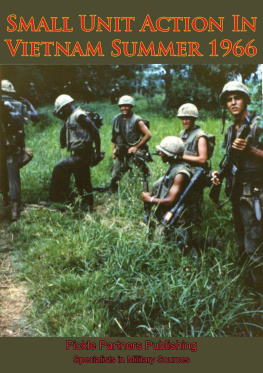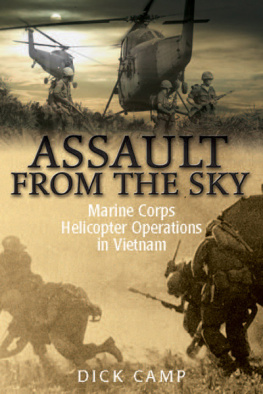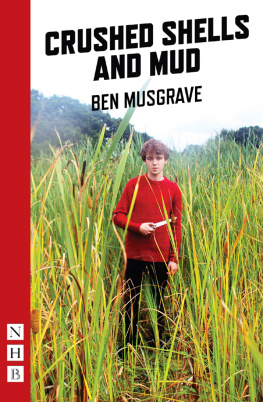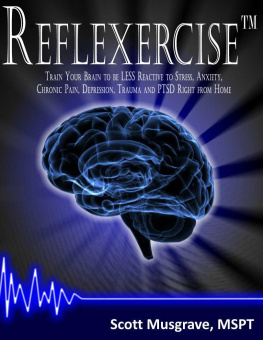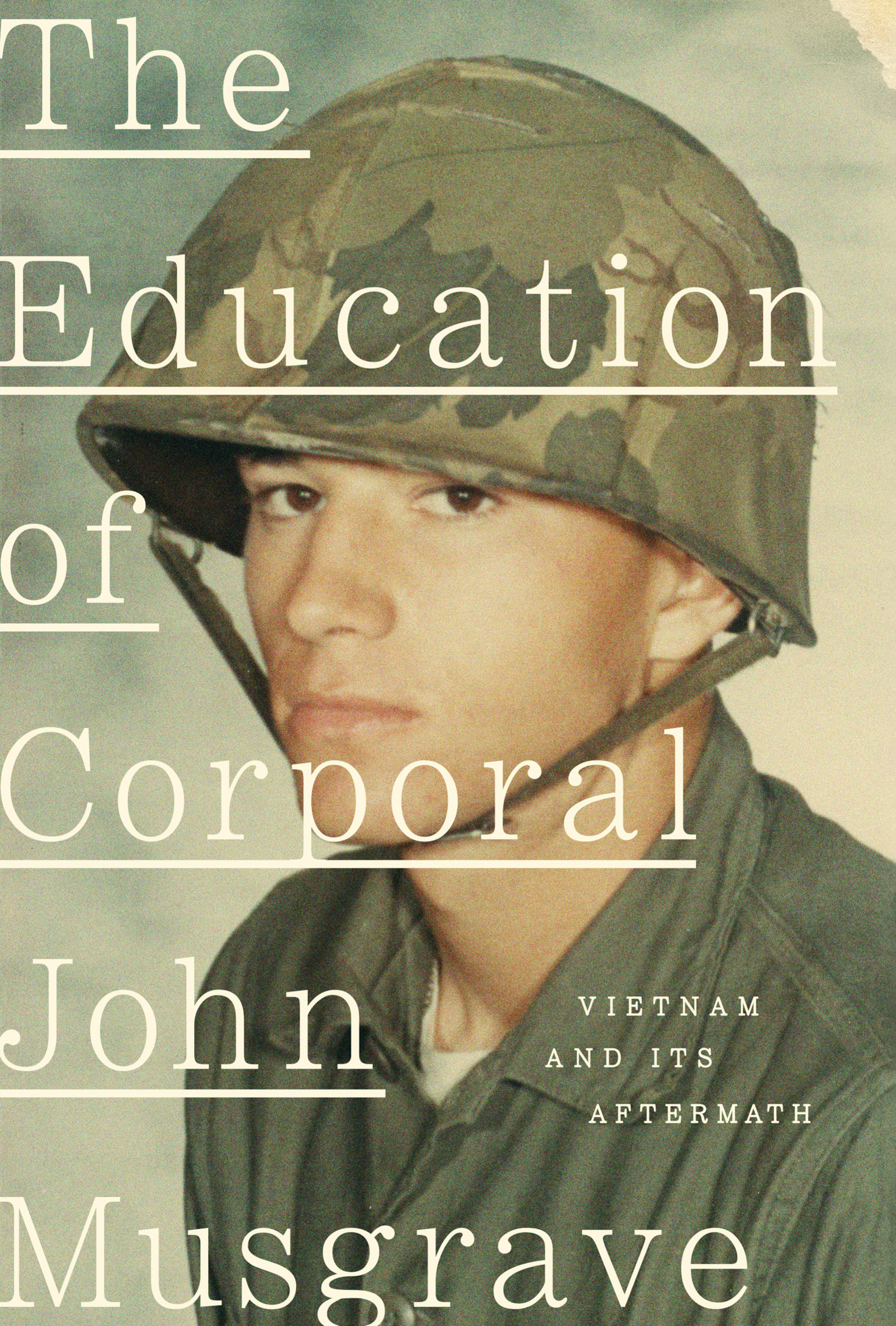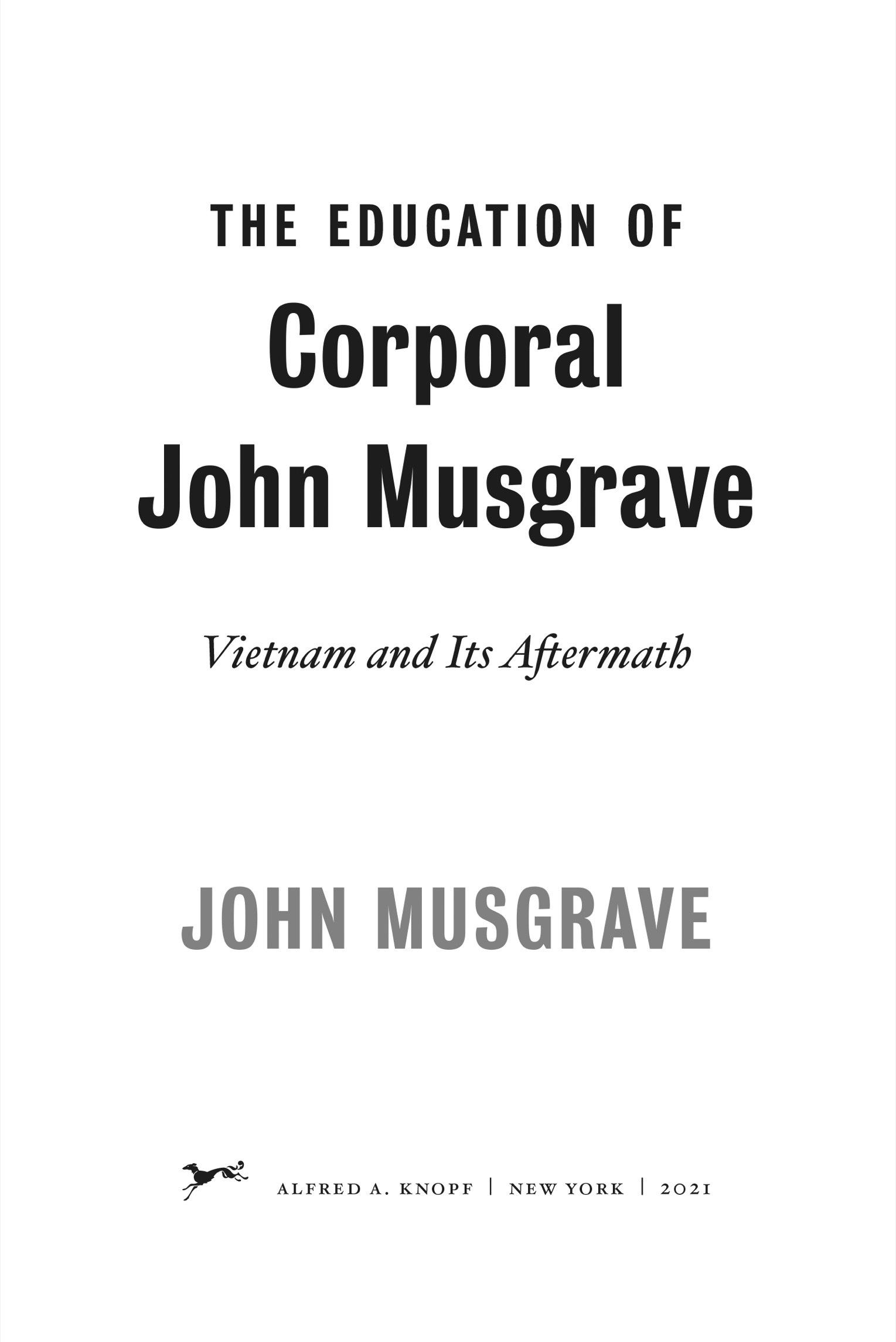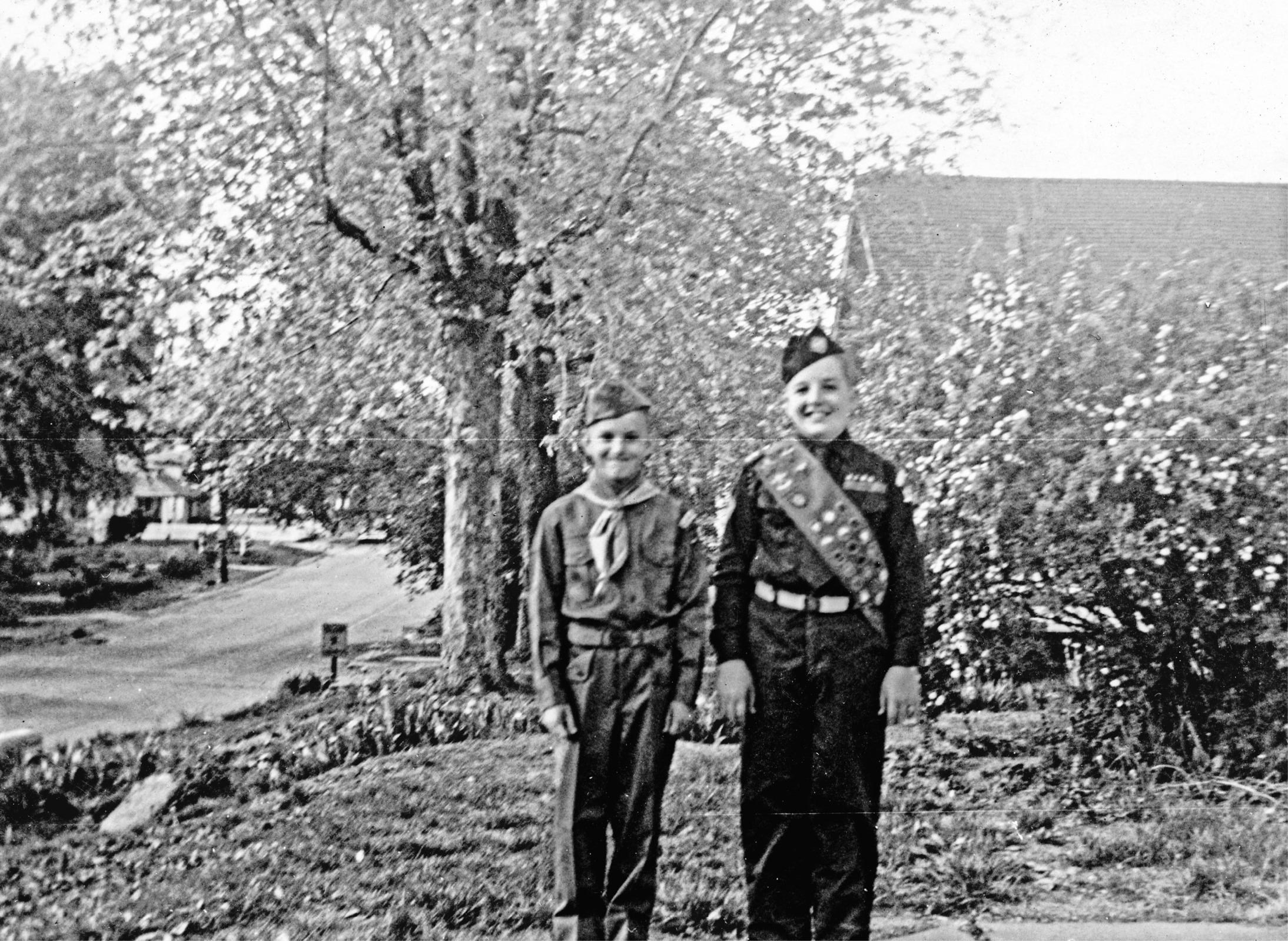ALSO BY JOHN MUSGRAVE
Notes to the Man Who Shot Me: Vietnam War Poems
On Snipers, Laughter and Death: Vietnam Poems
Under a Flare-Lit Sky: Vietnam Poems
The Vietnam Years: 1000 Questions and Answers (co-author)
this is a borzoi book published by alfred a. knopf
Copyright 2021 by John Musgrave
Foreword copyright 2021 by Lynn Novick and Ken Burns
All rights reserved. Published in the United States by Alfred A. Knopf, a division of Penguin Random House LLC, New York, and distributed in Canada by Penguin Random House Canada Limited, Toronto.
www.aaknopf.com
Knopf, Borzoi Books, and the colophon are registered trademarks of Penguin Random House LLC.
All photographs are courtesy of the author unless otherwise indicated.
Library of Congress Cataloging-in-Publication Data
Names: Musgrave, John, [date] author.
Title: The education of Corporal John Musgrave : Vietnam and its aftermath / John Musgrave.
Description: First edition. | New York : Alfred A. Knopf, 2021.
Identifiers: lccn 2020021754 (print) | lccn 2020021755 (ebook) |
isbn 9780451493569 (hardcover) | isbn 9780451493576 (ebook)
Subjects: lcsh : Musgrave, John, 1948 | Vietnam War, 19611975Personal narratives, American. | United States. Marine CorpsBiography. | United States. Marine Corps. Marine Regiment, 9th. | Vietnam War, 19611975VeteransBiography. | Vietnam War, 19611975Protest movementsUnited States. | VeteransUnited StatesSocial conditions20th century.
Classification: lcc ds 559.5 . m 876 2021 (print) | lcc ds 559.5 (ebook) | dc 959.7/0434092 [B]dc23
LC record available at https://lccn.loc.gov/2020021754
LC ebook record available at https://lccn.loc.gov/2020021755ata]
Ebook ISBN9780451493576
Cover photograph courtesy of the author
Cover design by Tyler Comrie
ep_prh_5.8.0_c0_r0
To my parents, Robert and Wilda Musgrave
If were truly blessed we get two families:
The one God grants us at birth,
and the other we build with the people
God places in our lives.
Its all about family.
Semper Fi
Certainly there is no hunting like the hunting of man and those who have hunted armed men long enough and liked it, never really care for anything else thereafter. You will meet them doing various things with resolve, but their interest rarely holds because after the other thing ordinary life is as flat as the taste of wine when the taste buds have been burned off your tongue.
Ernest Hemingway, On the Blue Water
Contents
Foreword
For more than a decade, we tried to make sense of one of the most consequential, divisive, and unsettled events in American history. We hoped, in the process of creating our documentary film series The Vietnam War, we would find answers to many essential questions: What really happened? Why did things go wrong? Who is to blame? Why, four decades after it ended, are we unable to put Vietnam behind us? And why, long after our government reconciled with the government of our former enemy, have we not yet fully reconciled among ourselves? While making our film, we got to know more than a hundred men and women who bravely shared their stories with us, Americans and Vietnamese, combatants and civilians. Seeing the war through their eyes, we came to understand that our initial questions led only to deeper, sometimes unanswerable questions: Were the sacrifices in blood and bone too high? What meaning can be found in the trauma and suffering of the war? Who was right? Who was wrong? And, ultimately, what does it mean to be a patriot, and a hero?
Of all the human beings who bore witness for our cameras and helped us see and hear and appreciate the nuances and complexities of the war, none touched us more deeply than John Musgrave. From Lynns first phone call with John in 2010, we realized we were in the presence of one of the most honest, brave, thoughtful, decent, selfless, and compassionate human beings we have ever had the good fortune to know. Spending time with John, being present as he told his devastating and inspiring story, was humbling, overwhelming, life altering. There are no words, truly, to express our gratitude for the priceless gift he gave to our project, and to posterity. As he recounted his epic journey from innocent young man to hardened Marine, grievously wounded warrior, impassioned antiwar protester, and finally aging veteran, we were spellbound. Throughout, John was, and is, unfailingly, scrupulously, honest. John cannot not tell the truth, whether it puts him in the best light or not. And sometimes, as he will be the first to tell you, it does not. Having interviewed him and spent a lot of time with him, we thought we knew Johns story, but the revelation of this beautiful and wrenching memoir is that, in collaboration with the brilliant writer Bryan Doerries, John has found the courage to dig even deeper. He peels back the layers of his life, and his soul, to revisit his most searing experiences in the war, his alienation as a Vietnam veteran on a college campus, his search for meaning and purpose in an increasingly polarized and atomized America, and his determination to impart his wisdom to younger generations of Soldiers so that they do not have to endure the same suffering he went through. In sharing his intimate personal odyssey so completely in this book, John Musgrave has given us yet another great gift: he has shown us what it really means to be a patriot and a hero.
Ken Burns and Lynn Novick
PROLOGUE
The Music of the Night
E very Marine has three birthdays: the day his mother issued him onto this earth, the day the Marine Corps was formedNovember 10, 1775and the day he graduated from boot camp and was addressed for the first time as a Marine. On that day, he is reborn and everything in his life irrevocably changes.
It is said that the Marine Corps builds men, at least that was the slogan when I enlisted at age seventeen, but not one of us who entered boot camp together in 1966 was foolish enough to think he would be a man when it was over. We would be Marines, and that was enough for us. Still, I dont think we realized how dramatic the transformation would be.
The Corps specializes in tearing down recruits and remolding them as Marines. At boot camp, the Drill Instructors work tirelessly to undo nearly two decades of civilian bullshit in new recruits. And thats exactly what they did to me. When they were done, I was completely different, inside and out.
I entered boot camp skinny and tall, and when I left, I was thirty pounds heavier and one inch taller. My waist remained the same, because I had gained nothing but muscle. But even more pronounced than these physical changes was my new attitude, a whole new sense of self-worth, self-confidence, and mission.
Me in my Boy Scout uniform, next to my brother, Butch, in front of my home in Fairmount, Missouri, in 1959.
During boot camp, I had been challengedphysically and mentallylike never before, and I had risen to the challenge. I learned to deliver violence upon fellow human beingsnot just how to kill, but how to cultivate the requisite attitude and willingness to pull the trigger. And, over the course of those thirteen weeks, my friends and I had also acquired a deep and abiding sense of loyalty, to each other and to the Corps. As a child, I had a vague notion of loyalty from Boy Scouts and church, but the Marine Corps hammered it into usclear and stronglike the steel of a bayonet. If we learned one thing in boot camp, it was the value of loyalty, that Marines never abandon their buddies, no matter what. I, and thousands of other Marines, wouldnt be here today if it werent for that lesson or for the system that created the young men who were willing to die to help a buddy.

